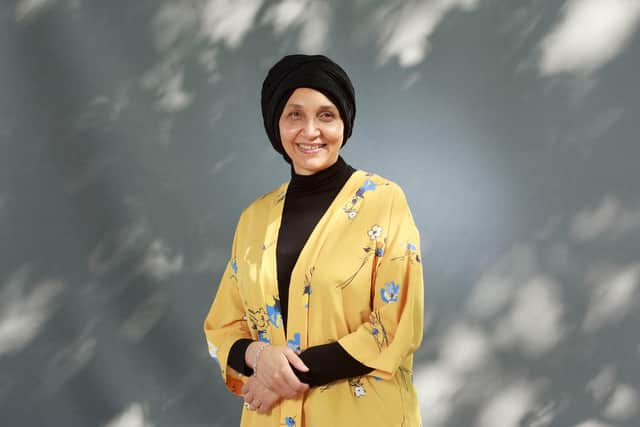Book review: River Spirit, by Leila Aboulela
In a time when many nations across the west are making efforts to face the truth about their colonial past – and when Scotland has just marked the appointment of its first Muslim First Minister – the Aberdeen-based Scottish-Sudanese writer Leila Aboulela holds a unique place in Scottish literature, for the immense passion and insight she brings to the subject of colonialism and its legacy, from the perspectives of both colonisers and colonised.
Her latest novel River Spirit – her sixth, since her acclaimed 1999 debut with The Translator – is set mainly in Sudan, in the war-torn years between 1877 and 1898, when a visionary Muslim leader known as the Mahdi (the “Expected One”), encouraged impoverished and over-taxed rural tribal communities to rise up against their Ottoman imperial masters, then allied to the British.
Advertisement
Hide AdIn this bloody and traumatic context, Aboulela tells the story of a girl called Akuany, later known as Zamzam, whose life is broken and scarred a dozen times over, as the fighting surges through her home village on the banks of the Nile in South Sudan, and drives her northwards towards servitude and slavery, first in the city of Al-Ubayyid and then in Khartoum itself, as the Mahdi’s forces eventually seize the whole of Sudan, following the defeat and death of the British General Gordon at Khartoum in 1885.


It’s characteristic of Aboulela’s writing, though, that although the story she tells is harsh and often horrific, her narratives, sometimes offered in the voices of those close to Akuany as well as in the third person, also glow with a rare beauty, a shining sensual awareness of the joy of life. Akuany loves a man called Yaseen, a young Khartoum merchant who yearns for a scholarly life, and who saves her and her little brother after their village is destroyed; and their unbreakable bond runs like a golden thread through the novel, as does Yaseen’s profound and highly educated Muslim faith, which leads him to reject the false Mahdi, with all the risks that entails.
Yaseen’s is one of the many voices we hear in the novel; we also hear, among others, from General Gordon himself, and – later in the story – from Yaseen’s remarkable wife Salha, an educated woman of Khartoum who thinks and speaks with a freedom Akuany has never seen in a woman before. There is also a young Scottish artist and engineer called Robert, an Aberdonian in Khartoum, who like Akuany only appears in the third person; and always, in the background of all their stories, this sense of energy and exuberance, of the blazing heat of Africa, of the earth’s glorious abundance, and of the river, the White Nile, which is Akuany’s home, her childhood companion, and the consolation of her troubled years in Khartoum.
As the story closes – in a rush of letters from Salha, taking the story up to the restoration of British rule in 1898 – we begin to see Aboulela’s political vision in more complete form. We see that the Mahdi’s nationalist uprising is both flawed, because he is not the true Mahdi, and justified, because foreign colonial rule is never defensible. We glimpse the immense historic resources and wisdom of the Sudanese Islamic culture into which Aboulela was born, and her absolute conviction that where there is faith, humanity has an obligation to practice it in conjunction with independent thought and reason, and with compassion.
And above all, in the shimmering quality of her prose, we glimpse the peace and joy that underlies her world view, perhaps a vital one for our time; clear-eyed, realistic and sophisticated in recognising the world’s horrors – but never without hope, or the underlying sense that our conscious existence, here on earth, is a miracle to be celebrated, every day that we live and love.
River Spirit, by Leila Aboulela, Saqi Books, 320pp, £16.99